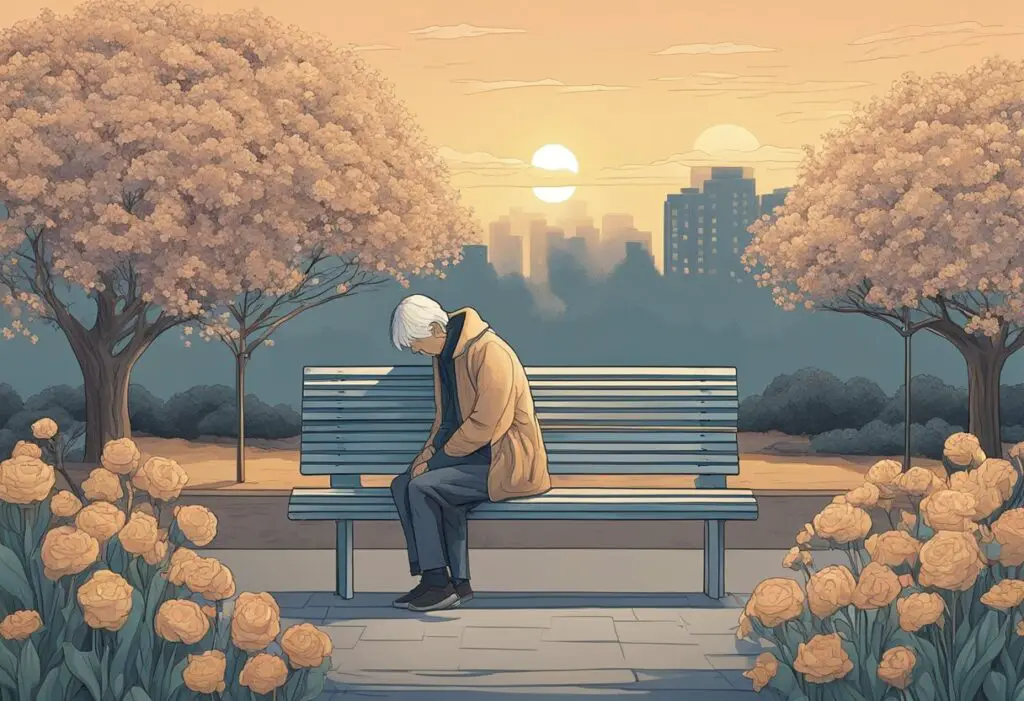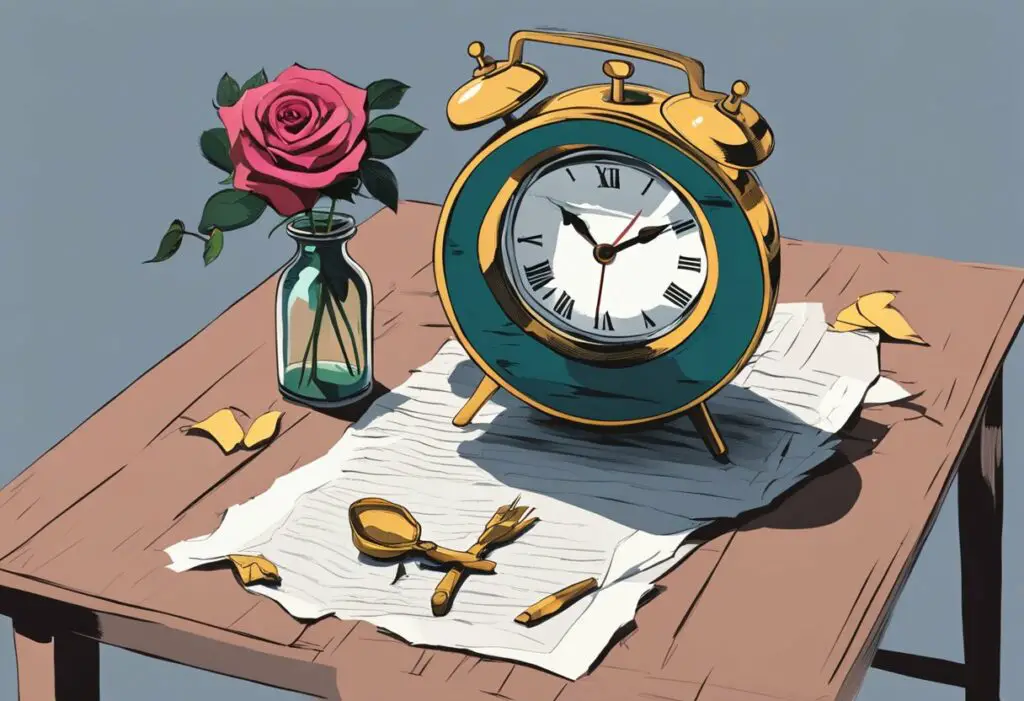Moving On: The Time It Really Takes to Overcome a Lost Love and Embrace the Future

Overcoming a lost love is a journey unique to each individual. The pain of a breakup can leave a profound impact, affecting one’s emotions, daily functioning, and overall wellbeing.
Psychologists suggest that the process of healing from a romantic breakup involves various stages, including denial, anger, bargaining, depression, and acceptance.
However, the duration of this process is not set in stone and can vary greatly depending on personal resilience, the nature of the breakup, and the depth of the connection that was lost.
The notion of a “standard” time frame for moving past a lost love is a myth. Some individuals may bounce back after a few weeks, while others might take years to fully recover.
Factors that contribute to the duration of the recovery include the length of the relationship, the level of emotional investment, and the presence of a supportive social network. Personal coping mechanisms and one’s ability to manage stress and change also play critical roles in the healing timeline.
Understanding Heartbreak

Heartbreak is a complex emotional and psychological experience characterized by a deep sense of loss and longing. This section explores the mechanisms underlying this universal human experience.
Psychology of Attachment
Attachment theory explains the bond between individuals, which, when disrupted, can lead to emotional heartache. Humans inherently form strong emotional bonds, and the loss of such a connection triggers a profound stress response.
- Styles of Attachment:
- Secure: Healthy and adaptive bonding.
- Anxious-preoccupied: Tendency towards worry and insecurity in relationships.
- Dismissive-avoidant: Independence and discomfort with closeness.
- Fearful-avoidant: Mixed feelings about relationships and intimacy.
Stages of Grieving
Elisabeth Kübler-Ross’s model outlines five stages through which one may progress following a loss.
- Denial: Refusal to accept the reality of loss.
- Anger: Frustration and irritation, often misplaced or directed at others.
- Bargaining: Negotiating with oneself or a higher power to reverse the loss.
- Depression: Profound sadness and withdrawal from life’s activities.
- Acceptance: Coming to terms with the loss and moving forward.
Factors That Affect Healing Time
Several variables can influence the duration and intensity of the grieving process after a breakup.
- Personal Resilience:
- Resilient individuals may recover more quickly.
- Lack of resilience can prolong the healing period.
- Support System:
- A strong support network can significantly shorten the grieving timeframe.
- Isolation may exacerbate the sense of loss and delay recovery.
- Prior Experiences with Loss:
- Previous encounters with loss might either speed up or slow down the current healing process.
- The impact of past losses is highly individualized.
Strategies for Moving On

Overcoming the heartache of a lost love is a complex journey. The following strategies, broken down into focused areas, are essential to facilitate healing and personal growth.
Self-Care and Emotional Wellness
Prioritizing self-care is crucial to the healing process. Individuals should:
- Maintain a consistent sleep routine to ensure adequate rest.
- Eat a balanced diet rich in nutrients to support physical health.
- Practice mindfulness or meditation to manage emotional turmoil.
- Seek therapy if persistent, overwhelming feelings arise.
Social Support Networks
Leveraging social networks provides emotional scaffolding. One should:
- Regularly connect with friends and family who provide understanding and comfort.
- Join support groups where they can share with others experiencing similar situations.
- Engage in social activities that foster positive interactions without the pressure of dating.
Engaging with New Experiences
New experiences can reframe one’s perspective on life. It’s beneficial to:
- Pursue a new hobby or skill, diverting focus and generating a sense of achievement.
- Travel to new places to broaden horizons and create fresh memories.
- Take on volunteer work to cultivate a sense of purpose and community connection.
Rebuilding and Rediscovering Self

After a breakup, individuals face a unique opportunity to refocus on their personal development and to set new objectives to shape their future.
Personal Growth Post-Breakup
In the wake of a breakup, a person may experience an accelerated period of personal growth. Self-reflection tends to increase, prompting a deeper understanding of one’s wants and needs. Many find that journaling aids in processing emotions and self-discovery. Additionally, they might engage in activities such as therapy or meditation, facilitating emotional healing and fostering resilience.
Pursuing New Goals
Setting and pursuing new goals post-breakup can instigate positive life changes. For instance, a person may decide to:
- Career: Enhance their professional skills by taking courses, aiming for a promotion, or switching fields entirely.
- Education: Return to school or begin a training program to expand knowledge and open up new career opportunities.
- Hobbies: Take up new hobbies or revisit past interests that were sidelined during the relationship.
- Physical Health: Commit to a fitness plan or a healthier diet, resulting in improved physical well-being.
By focusing on tangible objectives, they effectively redirect energy towards personal milestones and achievements.
